Hunter Biden's push for the deal that never was at the Delaware City refinery
- Oops!Something went wrong.Please try again later.
- Oops!Something went wrong.Please try again later.
- Oops!Something went wrong.Please try again later.
Editor's note: Hunter Biden is scheduled to appear in federal court Wednesday in Delaware.
It is the latest of at least three years of controversy surrounding the son of the president and his businesses, much of it caused by revelations uncovered from a laptop leaked to the FBI and to Trump political operatives that had its origin at a Wilmington computer repair shop.
Those revelations focused on his international deals. But an analysis of his emails gives a glimpse of Hunter Biden’s businesses with a significant presence in his home state a decade ago.
This is the third of three stories Delaware Online/The News Journal has published this week examining Hunter Biden’s emails and what they reveal about his Delaware business ties. You can read the first one here and the second one here.
The year 2010 was critical for the Biden business and political fortunes.
At the time, Hunter Biden was connecting Delaware officials with greentech businesses, while fundraising for his brother Beau’s reelection campaign for Delaware Attorney General.
The paths of those separate activities crossed with one venture that sought to install a solar farm and other green energy infrastructure at the Delaware City refinery, according to an analysis of emails that appear to come from the accounts of Hunter Biden.
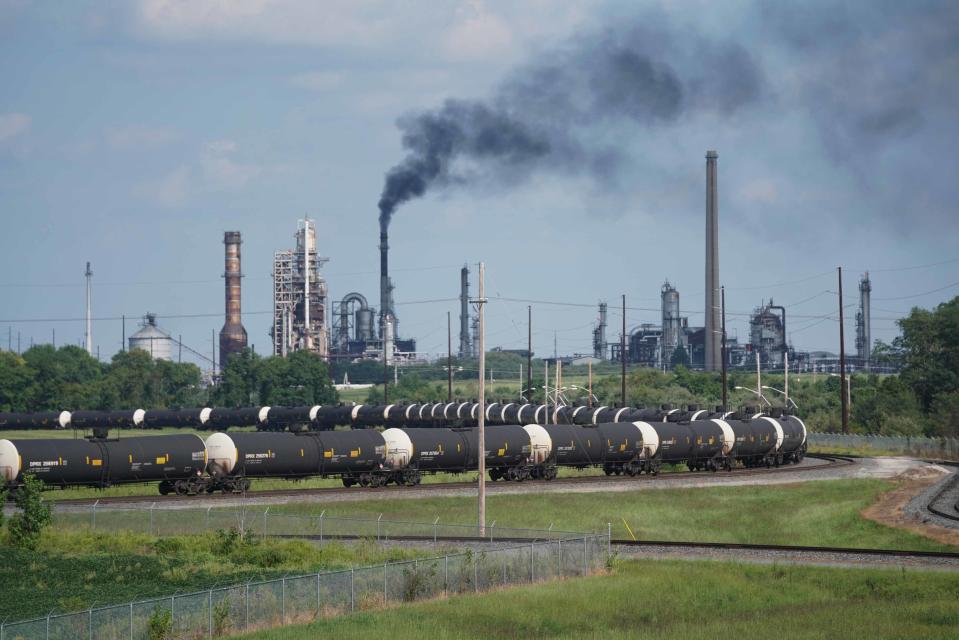
The emails tell the story of how over the span of a year, the venture promoted by Hunter Biden and led by a prominent political donor went from a pitch to the Delaware governor to a near-done deal, before being killed in the end by upper management of PBF Energy – a private equity-backed company that had purchased the Delaware City refinery.
Along the way, Hunter Biden, his colleague Eric Schwerin, and the political donor, Wade Randlett, actively fundraised for Beau Biden’s reelection campaign for Delaware Attorney General.
In all, the events represent a case in Delaware of Hunter Biden and his associates blurring the lines between business and politics.
It occurred, in particular, during the early months of 2010 when Schwerin and the younger Biden switched frequently from business tasks with state officials to political ones with donors.
There was a February 2010 email in which Schwerin alerted Hunter Biden that Randlett wanted them to gather “intel” from a state official.
Days later, Beau Biden said in an email to a political aide that he had met about fundraising in California with Schwerin, Hunter Biden and “Wade (CA),” an apparent reference to Randlett.
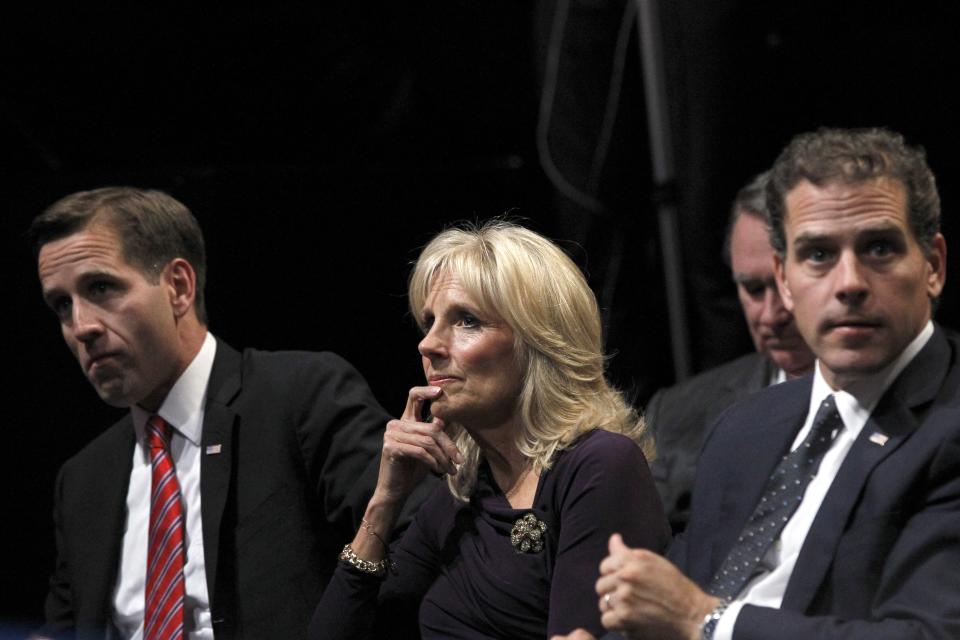
“We need to see if he can put 25K together in next 45 days,” Beau Biden said.
As plans for the green energy venture progressed the next month, Schwerin emailed Beau Biden’s inner circle to confirm Randlett as host for their political fundraiser in Washington, D.C. Joe Biden, then the vice president, was scheduled to attend the event, according to Hunter Biden’s emails.
The goal was to raise $50,000, according to an email sent by Schwerin – a modest amount for national politics, but potentially campaign-defining for a race in little Delaware.
Two weeks before the fundraiser, Hunter Biden and his team learned that PBF Energy’s bid to purchase the Delaware City refinery would soon be finalized.
The sale to PBF would allow Randlett’s green energy venture to progress.
It also would be “very helpful” for a fundraising “event for Beau,” Schwerin said in an email.
Days before the fundraiser, Delaware’s head of economic development introduced Randlett to officials from PBF Energy.
In the email, the economic development director, Alan Levin, described Randlett's green energy venture as having arrived in Delaware “through the Vice President’s Office” – a seemingly inaccurate statement, according to the emails.
“If the mention of the VP’s Office in the email was authentic, it was probably an effort by me to add credibility to the venture again because I wanted as many jobs created as possible,” Levin said in an email to Delaware Online/The News Journal.
NEED TO KNOW: How Hunter Biden played hand in bringing business to University of Delaware's STAR Campus
Speed and taxpayer money
By 2010, federal officials had committed billions of dollars to the greentech industry, largely from a stimulus bill Congress had passed following the onset of the Great Recession.
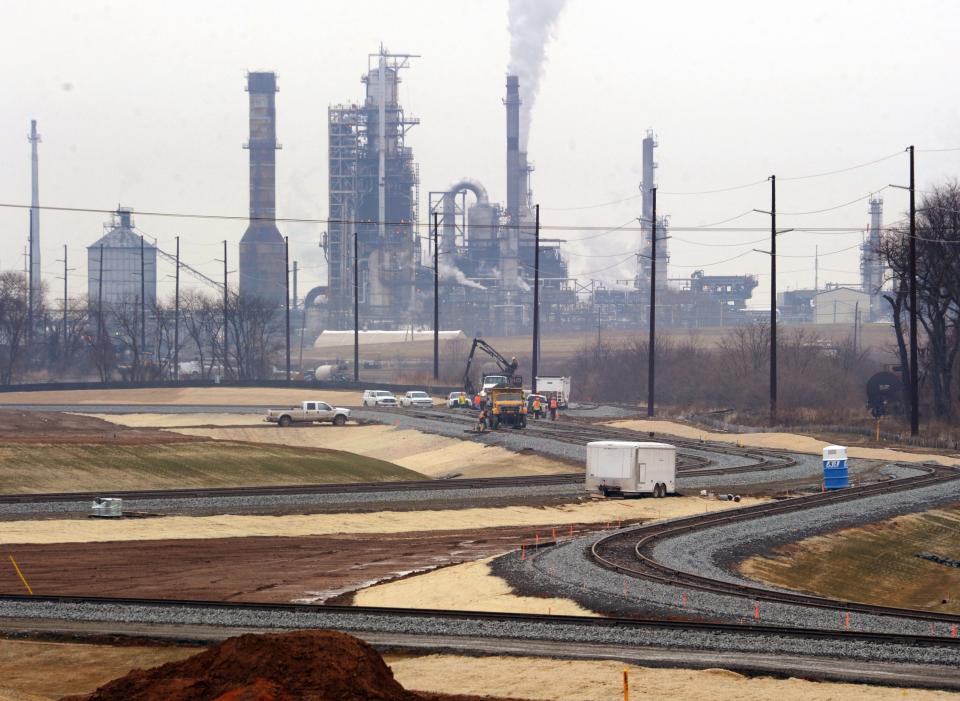
That same year, Delaware state officials negotiated a sale of the Delaware City Refinery.
THE SALE: Valero to sell refinery for $220 million
Randlett saw an opportunity from the two developments.
In January 2010, a Washington D.C. lobbyist and former Biden senate staffer emailed Hunter Biden to share details of Randlett’s business proposal, which the lobbyist described as a venture to add biodiesel equipment to the Delaware City refinery.
The venture would transform the “dirty, old” business of refining crude oil into a “green, new” one, replete with lots of Delaware jobs, the lobbyist and an aide to Joe Biden in the 90s, Chris Putala, said in the message.
Copied on the email was Randlett, who promptly replied to the thread to say the venture “could be one of the great public-private partnerships of all time if we do it right."
To do it right, there were two key components, Randlett said: Speed and taxpayer money.
Delaware taxpayers must invest $25 million in seed money, and the venture needed to be substantially underway by the end of 2010 to qualify for lucrative federal tax credits, he said.
Randlett also noted there would be a substantial financial reward for the right person who could clear hurdles in Delaware. In an email to Hunter Biden, Randlett said he allocated a 5%-equity stake in the venture “for our on-the-ground partners who manage local public affairs issues,” he said.
“We would look to you for guidance on how to deploy that start-up equity,” Randlett said in the email.
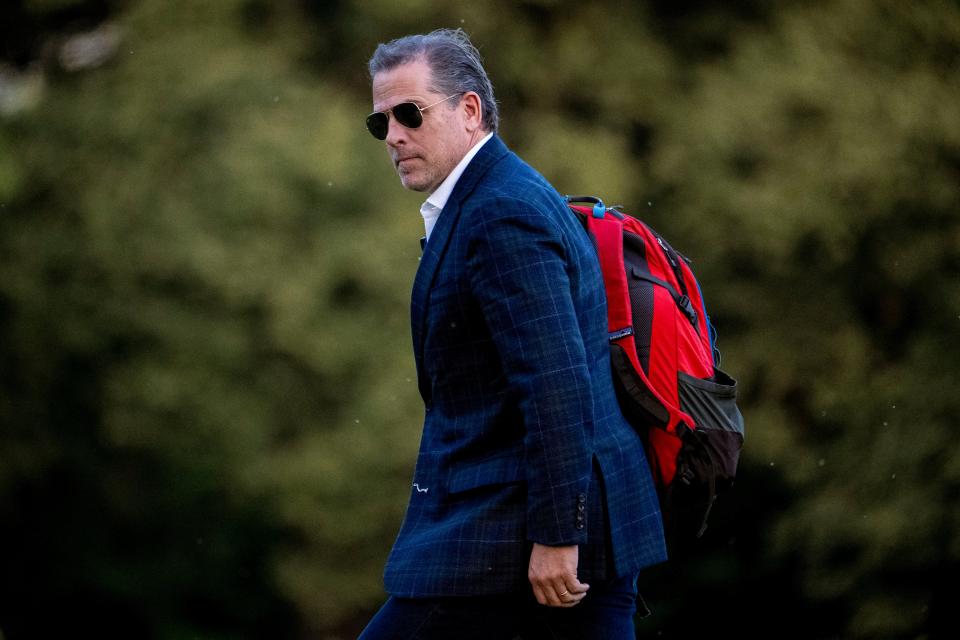
The pitch was successful as the next day Hunter Biden said he could secure the $25 million with or without taxpayer help, so long as Randlett was “willing to work with labor” – a reference to a unionized workforce.
The new team then began to plan how best to alert then-Gov. Jack Markell of the project and its needs.
That would be Hunter Biden’s job.
In a Jan. 30 email, Schwerin alerted Randlett that Hunter Biden would be “reaching out to the Governor this weekend.”
In a reply, Randlett noted that the venture would need to lease 120 acres of land for $1/year. It would also need $25 million to $50 million in loans from the state, “or in investment from Valero” or another investor who would be qualified to take advantage of federal tax credits.
"After Hunter has a chance to chat with the Gov, let's do a quick call to understand his view of how attractive either/both of these projects are," Randlett said in his reply.
It is not clear what was said during the subsequent conversation with the governor, as neither Markell nor Hunter Biden would comment for this story.
The following month, Randlett sent Schwerin and Hunter Biden a draft of an email he intended to send to Markell. The message opened with Randlett noting that he and the governor shared a mutual friend in Hunter Biden.
He then introduced his venture and boldly predicted it could “become the largest and most important renewable energy campus in the country, if not the world.”
Randlett said the proposal included three key pieces: a solar farm; a “green diesel” and “green jet fuel” refinery and distribution hub; and a factory to refine organic material into fuel for a co-generation power plant that already existed at the site.
After reviewing the draft email, Schwerin directed Randlett to send it to Markell’s then-secret state email address – alan.jackson@state.de.us – and to copy Hunter Biden on the email.
On Feb. 4, Markell responded to say he would assign Levin to reach out about the venture. Levin messaged that same day, telling Randlett that the concept was intriguing, and suggested they meet with other members of Markell’s staff.
Over the next two months, Randlett’s and Hunter Biden’s team waited as officials from the private equity firm, Blackstone, negotiated with their counterparts from Valero Energy, the previous owner of the refinery, to take over and restart the facility.
By early April, Schwerin told Hunter Biden in an email to expect an announcement about the refinery’s sale soon.
He also said Levin wanted to speak with the team the following week.
News of a refinery sale is “going to be very helpful on the NFC event for Beau,” Schwerin said, a reference to a Beau Biden political fundraiser where Randlett would serve as host.
NFC was a reference to the Democratic Party’s national finance council.
The day after Schwerin alerted Hunter Biden of the impending refinery deal, Valero officially announced the sale of the facility in Delaware City to PBF Energy for $220 million.
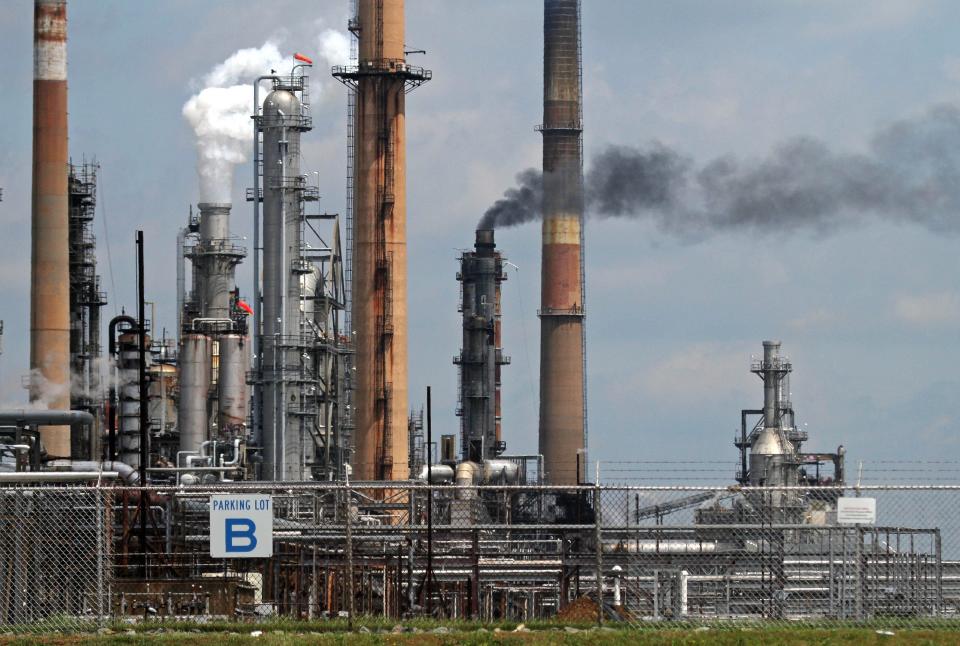
As part of the deal, Delaware taxpayers gave PBF Energy a $20 million loan and a $10 million grant.
“We thank Gov. Markell for his active participation in facilitating our agreement,” Valero’s then-CEO Bill Klesse said in a press statement.
Following the announcement, Schwerin told Randlett in an email that Levin had contacted Hunter Biden that day.
He said he was “looking forward to now being able to turn to your proposal,” Schwerin said.
INVESTIGATION: What Hunter Biden's emails reveal about his investment in now-defunct Fisker Automotive
Manufacturing at the refinery?
Shortly before the announcement of the refinery sale, Schwerin emailed Hunter Biden, as well as longtime Biden aides Dennis Toner and Alexander Mackler, among others, to say the D.C. fundraiser for Beau Biden had been finalized “with an appearance by the VP.”
“Wade Randlett is confirmed to be a host,” Schwerin said in the email.
A week later, Randlett alerted Schwerin and Hunter Biden by email that he planned to expand the scope of the venture – one that would seemingly better exploit the lucrative federal government incentives for green energy.
Randlett’s new plan entailed turning part of the Delaware City refinery site into a “permanent manufacturing site” to license and build equipment that transforms organic material into fuel for electricity cogeneration plants – a process called pyrolysis.
The machines that refined the material could be sold for $50 million each, Randlett said, and he would target them for export “to our palm oil customers.”
In the email, Randlett indicated that the venture was, at that point, asking the state of Delaware for $10 million.
“My goal is to have this be a re-prioritization of the ~$10m or so that we would ask DE to loan, not an increase in the amount we would seek,” Randlett said.
In response, Schwerin said their team may also want to incorporate the University of Delaware into the deal.
“They have been talking to us about finding more commercialization opportunities for them and there may be something there we should talk about,” Schwerin said.
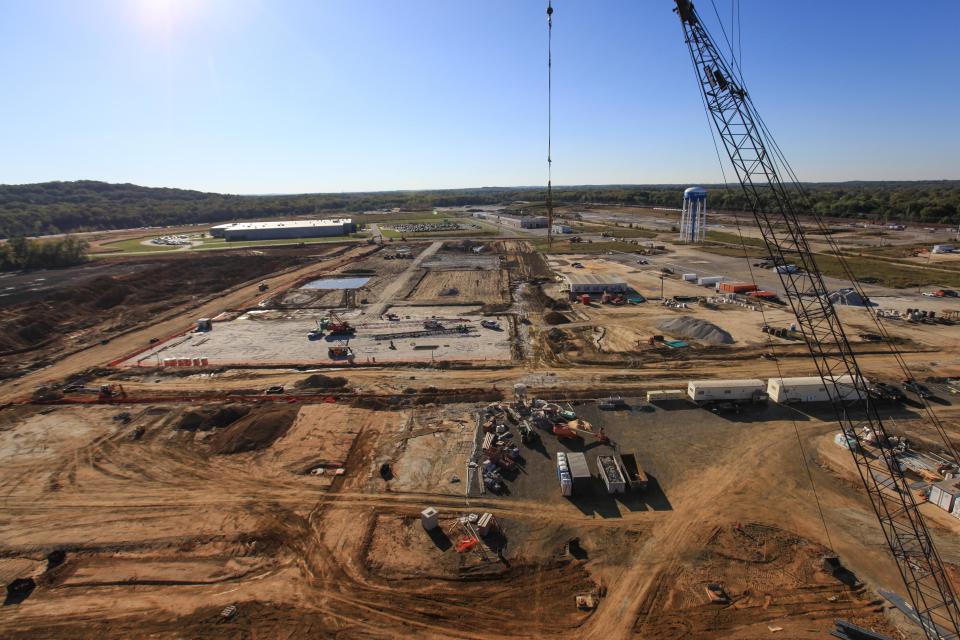
Hunter Biden then responded in an email that mentioned his ongoing discussions with the university to place a cleantech assembly plant, as well as a research facility for an electrical transmission company, on property recently purchased by university officials.
“They recently acquired the Chrysler Auto plant property and plan to create an "alternative energy park" on the site,” Hunter Biden said. “The possibility that we could also place a pyrolysis oil refining unit assembly plant their could be huge.”
'We want Nextfuels'
Following the sale of the refinery, the task for Hunter Biden and Randlett became convincing PBF officials to install alternative energy infrastructure at the site of their new refinery.
The first step was to introduce PBF Energy’s CEO Matt Lucey to Randlett and his proposal.
Levin did that on April 20 in an email in which he said Randlett came to the state’s economic development team “through the Vice President’s Office.”
In response to the introduction, Randlett asked Lucey if they could speak prior to a scheduled meeting he had that day with Hunter Biden.
Randlett would later tell Levin that he and Lucey “had a good long intro call.”
“I don't think there is anything we want that they don't want us to do. The issues will be around timing and priority,” he said. “Especially because of the ... tax credits expiring at the end of this year, I anticipate this being our biggest challenge with PBF.”
In his response, Levin said he would be meeting with Lucey the next day. He also urged Randlett to alert him to whatever he needed to “keep this moving.”
“We want NextFuels in DE!” Levin said, referring to the name of Randlett’s company, NextFuels, Inc.
Randlett then turned to Hunter Biden by email to say “Alan is really great.”
HEADED TO COURT: Did Hunter Biden get a sweetheart deal? How these cases play out with other defendants
The following June, Randlett’s worries were growing about getting his project underway before federal tax credits expired at the end of the year.
That month, he forwarded Hunter Biden and Schwerin an email previously sent to Levin about their approaching deadline. In the subject line, he wrote “Last gasp at solar.”
Randlett told Levin in the forwarded email that “the chance to put ~500 acre solar farm at the DE City site is closing out fast.”
But, he said, there was a “foreign investor” who might be willing to enter the deal and help it finalize “fast enough to sneak under the deadline.”
In the email to Levin, Randlett then asked if it were “plausible” to convince PBF Energy to either “give back to DE or do a trivial ($1/year) 25-year lease of the least-useful land on the site?”
It’s unclear what, if any response, came from Levin.
As the summer progressed, the communications continued, but their tone became less hopeful.
On July 19, Randlett emailed Schwerin and Hunter Biden to alert them to a phone call he had with Lucey from PBF Energy and to send them a cryptic message about the prospects of the venture.
“I think it's pretty clear what will be required to get anything more out of this site besides petro-oil,” he wrote.
The following month, Lucey replied to a Randlett email to tell him that “Senior management will meet on Monday - I will circle back with you thereafter.”
Five days later, Randlett emails Hunter Biden and Schwerin, with a simple message: “PBF said no.”
“I really think it's no to everything, for at least a very long time, which, practically for us, is likely never. Let's discuss before I call Alan about it,” he said.
The next month, Obama appointed Randlett to become a member of his Advisory Committee for Trade Policy and Negotiations.
Three years later, a company called SolarCity opened a 500-kilowatt solar farm in Delaware City on land donated by PBF Energy.
There is no indication that Randlett played a role in the deal.
In later years, Randlett also does not appear to have launched any additional Delaware ventures. But, he continued to be involved in Democratic Party politics in California and nationally.
In 2019, Randlett told the New York Times he would raise money for Joe Biden’s just-announced campaign for the White House.
At the time, Randlett also predicted that other Obama-era fundraisers would direct dollars to the campaign, calling Biden “an enormously valuable and loyal vice president of the man who we all shed blood, sweat and tears to make president of the United States,” according to the Times.
This article originally appeared on Delaware News Journal: Hunter Biden's interest in green energy, in Delaware and beyond

